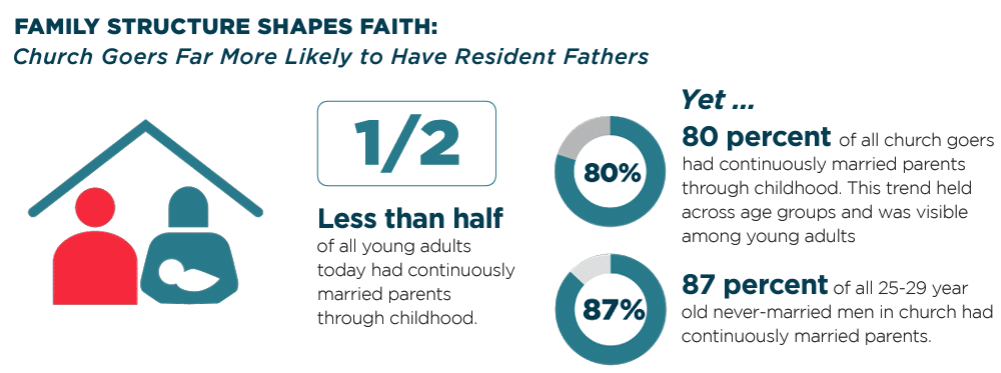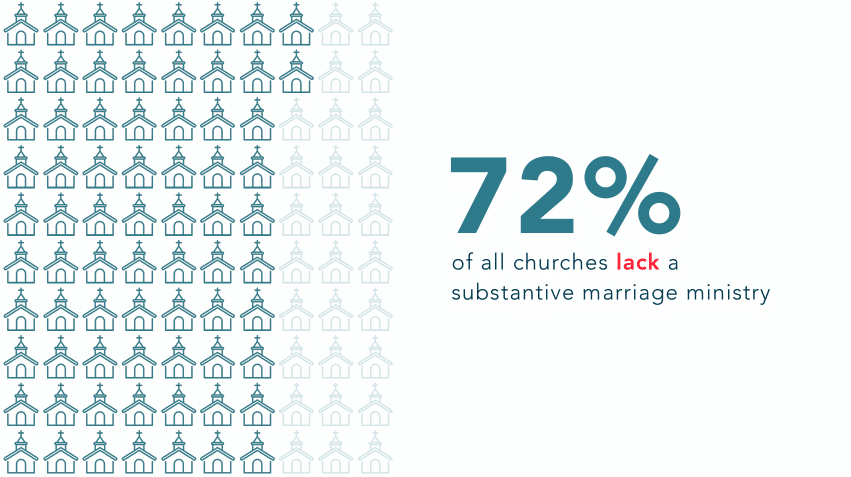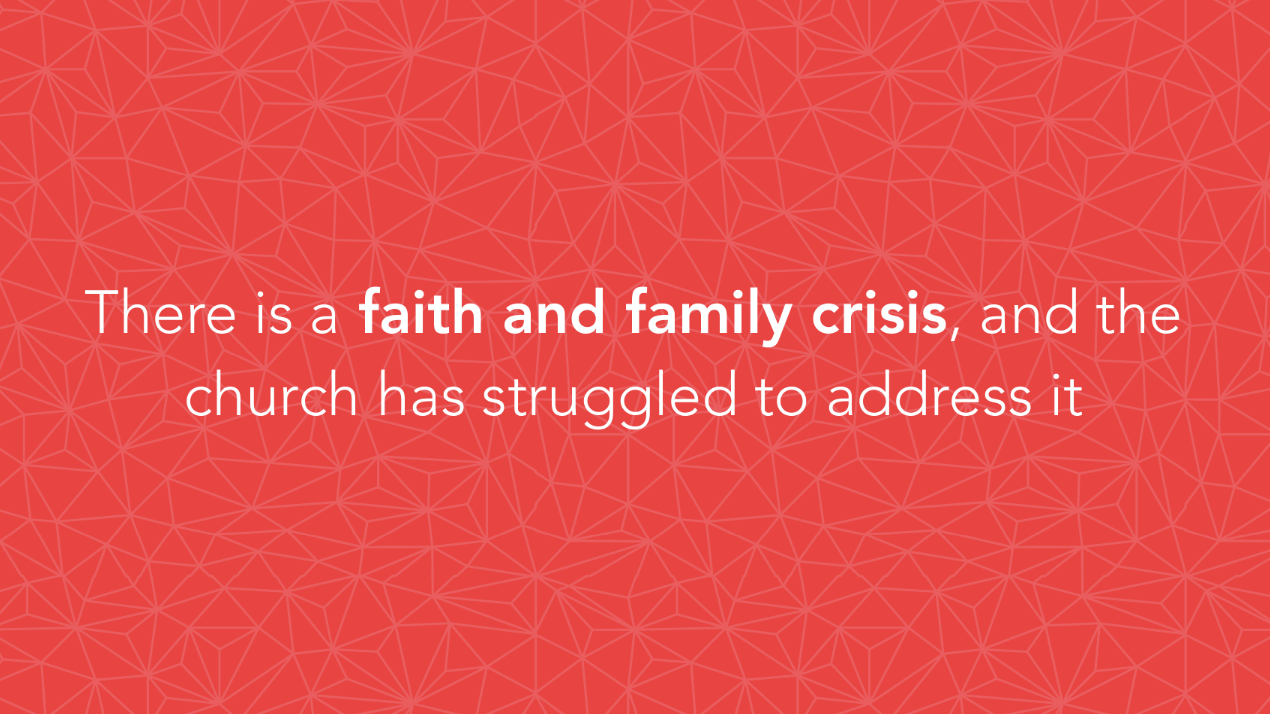“Marriage is the most urgent ministry gap in the church today”: US study links faith crisis to family woes
by Gracia Chiang // April 30, 2024, 7:34 pm

A report by Communio argues that marriage decline fuels faith decline. Photo by Drew Coffman on Unsplash.
Church attendance is falling in the US, a trend that has been exacerbated by the disintegration of marriages, according to an opinion piece that was recently published in The Christian Post.
Highlighting the faith decline, the article points out how the percentage of adults in the US who regularly attend religious services has dropped across the decades.
For instance, a Gallup study released in March 2024 showed that 20 years ago, 42 per cent attended religious services every week or nearly every week. This decreased to 38 per cent 10 years ago and has continued to slide to 30 per cent now.
Most attempts to explain this phenomenon are “either wrong or, at best, incomplete”, said J.P. De Gance, founder and president of Communio, a non-profit ministry that works with churches to strengthen relationships, marriages and the family.
“The faith crisis facing churches and denominations nationwide was fuelled by the collapse of the family at home,” he deduced, drawing from data his ministry has gathered over the years.
Strength of marriages affects the health of churches
Referencing Communio’s Nationwide Study on Faith and Relationships, De Gance noted that four out of five of churchgoers grew up in a home where their parents stayed married, a family structure that is becoming increasingly uncommon within the country.
According to the 2023 study, which surveyed 19,000 Sunday church attendees across 112 different congregations in the US, this finding was observed across all age groups, including young adults.
For example, 80 per cent of never-married Sunday churchgoers aged 25–29 were raised in homes with married parents. This stands in contrast to less than half of this age group in the US population that had the same childhood experience.
Drawing the link between family and faith, it appears that children who grow up in homes with married parents are more likely to attend church regularly as adults.

Source: Nationwide Study on Faith and Relationships by Communio
“Causation is notoriously difficult to prove,” stated the study’s report.
“However, the overall homogeneity in the families of origin from church goers in various generations (Gen Z all the way through the youngest Baby Boomers) is striking.
“The absence of a proportionate number of church attendees who grew up in homes without married parents across all recent generations suggests movement in family structure is at the heart of the decline in church participation.”
The study also touched on the role of dads, showing how the breakdown of marriages and the decline in involvement by fathers can impact transmission of faith and active church participation.
What happens then when a typical household is no longer one with married parents and children?
In his article, De Gance expressed concern that the number of US households comprising married parents with children under the age of 18 has tumbled from 40 per cent in 1970 to 17.9 per cent in 2023, according to census data.
That is why “marriage is the most urgent ministry gap in the church today”, he emphasised.
Are churches investing enough in marriage ministry?
In other research conducted by Barna and commissioned by Communio, it was found that 72 per cent of American churches lacked a substantive marriage ministry.
For this study, 531 clergy were interviewed between November 27, 2018, and February 12, 2019.

Source: The State of Marriage & Relationship Ministry report with research from Communio and Barna
Churches without a substantive marriage ministry did not have more than two of the below activities:
- Training and equipping leaders to mentor married couples.
- Organising a marriage retreat.
- Conducting a marriage workshop or seminar.
- Hosting date nights.
- Facilitating marriage support small groups.
In addition, over 70 per cent reported not having a ministry for newlyweds.
The survey also looked at how churches were helping single people in their marital aspirations.
The result? More than 90 per cent of churches did not offer any ministry for singles.

Source: The State of Marriage & Relationship Ministry report with research from Communio and Barna
Reflecting on the current state of marriage in the US, Communio’s De Gance said that the Church required a “metanoia” mindset shift.
Citing the original Greek word used in Matthew 3:2 for repentance, he explained how “that aspect of turning from one thing and turning towards another on a deeper level is a transformation in our thoughts and actions”.
Similarly, to stop and reverse the flight from faith, churches need to turn away from ineffective efforts and turn towards new approaches in ministry that address the root of the issue.
“We’ve seen time and time again, that when a church becomes intentional and strategic in nurturing strong marriages, they see strengthened families as shockwaves of faith surge through church families, where Christ-like love of earthly fathers glorifies our Heavenly Father, impacting the next generation,” said De Gance.
To equip churches in supporting singles and couples at each stage of romantic life, Communio’s strategic framework focuses on these four key areas: singlehood, marriage preparation, marriage enrichment and marriages in crisis.
What will happen when marriage and relationship ministries are transformed?
“I think we’d see every Gospel-centred church become an evangelising hub where people desire to enter and form healthy, God-honouring relationships,” concluded De Gance.
“At the local level, we’d see more people coming to faith in Jesus, more Christ-centred marriages forming and enduring, more healthy marriages thriving, and more children growing up to become adults who repeat the God-ordained masterpiece of ‘family’.”
RELATED STORIES:
Our kids are watching: State of the Family 2024 looks at the challenge of building strong marriages
We are an independent, non-profit organisation that relies on the generosity of our readers, such as yourself, to continue serving the kingdom. Every dollar donated goes directly back into our editorial coverage.
Would you consider partnering with us in our kingdom work by supporting us financially, either as a one-off donation, or a recurring pledge?
Support Salt&Light


